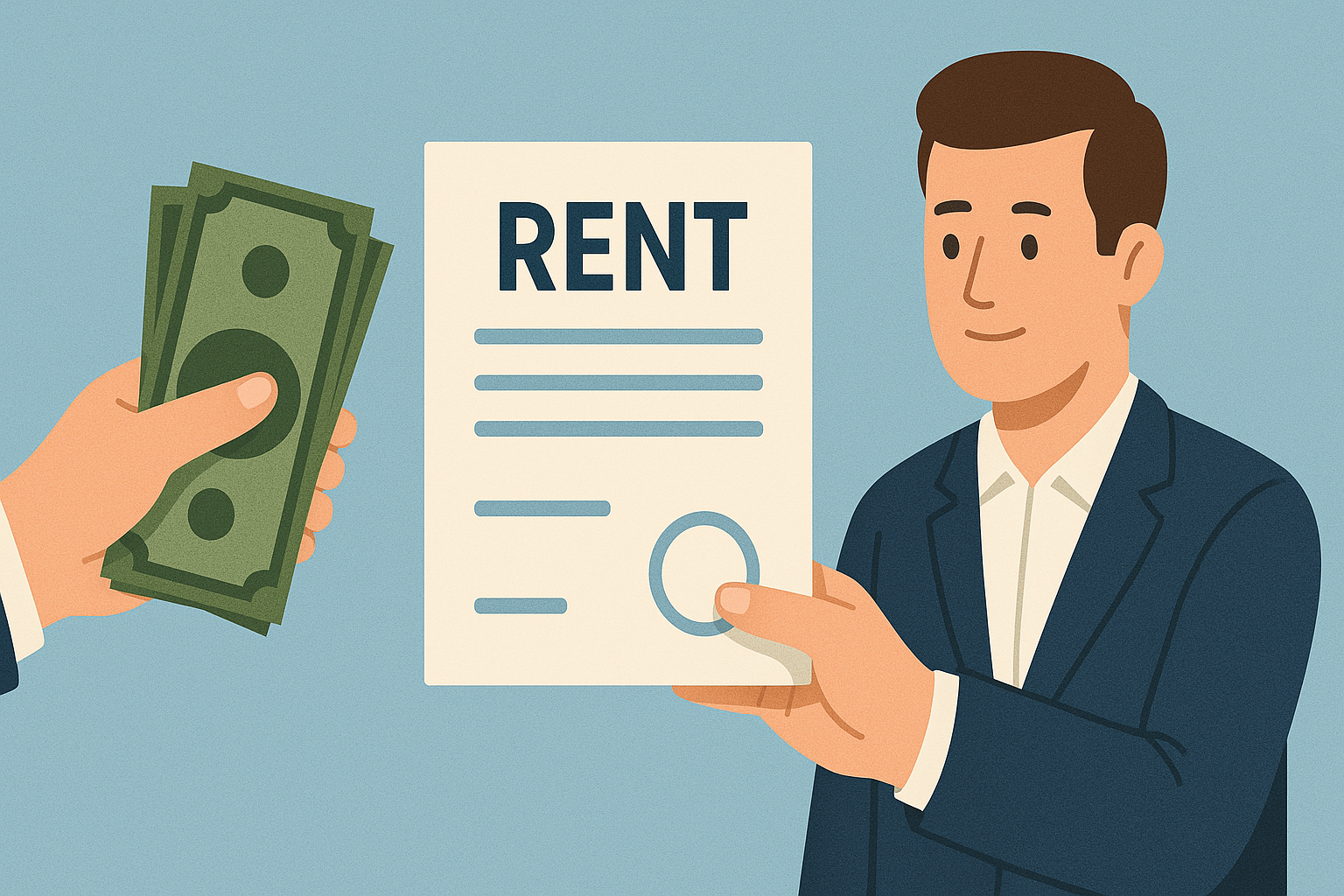As of April 2025, significant reforms to Universal Credit will come into effect, directly impacting rent payments across the UK.
These adjustments, aimed at reducing rent arrears and improving housing security, are expected to reshape how landlords and tenants manage housing payments.
Below is a detailed breakdown of the implications, processes, and responsibilities that will arise from these policy changes.
Overview of April 2025 Universal Credit Reforms
The UK government has announced a pivotal policy shift within Universal Credit (UC) that changes the way rent payments are administered.
These new regulations will expand the scope of Alternative Payment Arrangements (APAs), allowing rent payments to be made directly to landlords by default in more cases.
This is a major change from the current tenant-managed system, which has long been criticised for contributing to delays and arrears.
Direct Rent Payments to Landlords: What’s Changing?
Previously, tenants receiving Universal Credit were primarily responsible for paying their rent directly to landlords.
From April 2025, a more significant proportion of claimants will automatically have their rent paid directly to their landlord, particularly those flagged as vulnerable or having a history of arrears.
Key Aspects of the New Rent Payment Policy
Expansion of APAs: The Department for Work and Pensions (DWP) will increase the use of APAs to proactively reduce arrears.
Eligibility Triggers: Late payments, prior debt, or risk of eviction will initiate automatic redirection of rent payments to landlords.
Integrated Systems: Improved data sharing between DWP and housing providers will identify cases where direct payment is beneficial.
Implications for Landlords
More Secure Income Stream
These changes are a net positive for landlords, as rent will now be received directly from the government, reducing the risk of missed or late payments from vulnerable tenants.
Faster Escalation Protocols
Landlords will gain access to quicker APA applications through improved digital platforms.
The system will allow landlords to flag cases of arrears much earlier, ensuring preventive action before eviction becomes necessary.
Simplified Communications
A redesigned communication channel between landlords and the DWP will result in greater transparency, faster processing of APA requests, and more efficient case management.
Impact on Tenants
Reduced Administrative Burden
For tenants struggling with budgeting or facing financial difficulties, the move to automatic rent deduction helps avoid unintentional arrears and potential eviction notices.
Safeguarding Measures
While tenants still retain some autonomy, those who meet vulnerability thresholds will benefit from proactive protections, ensuring that their housing costs are covered before discretionary spending.
Concerns Around Autonomy
There may be instances where tenants contest direct payments due to personal preferences. However, the DWP has outlined a clear appeals and review process, ensuring that rights are protected.
Local Authorities and Housing Associations: Key Players in Execution
Proactive Data Sharing Agreements
Councils and housing associations will partner with the DWP under data-sharing protocols, allowing real-time flagging of tenants at risk of arrears.
Training and Support
Landlord bodies will receive updated training resources to ensure frontline staff are equipped to handle the new rules and support tenants through the transition.
timeline
title Universal Credit Rent Reform Timeline
2024-11-01: Final Legislation Announced
2025-01-15: APA Digital Portal Launch
2025-03-01 : Landlord & Tenant Guidance Released
2025-04-01: New Direct Rent Payment Rules Enforced
2025-06-01: First Round of Impact Assessments
Risks and Mitigation Strategies
Risk: Over-reliance on Automation
Mitigation: Regular audits of APA implementation and inclusion of tenant voice in appeals.
Risk: Tenant Confusion or Dispute
Mitigation: Clear tenant communications via online portals, leaflets, and local authority briefings.
Risk: Landlord Misuse of APA Triggers
Mitigation: DWP monitoring and penalties for misuse of escalation flags without proper documentation.
Recommended Actions for Landlords and Letting Agents
Audit Current Tenants: Identify those likely to be impacted by the APA changes.
Prepare Documentation: Ensure records of arrears and communication are up to date.
Update Internal Protocols: Align eviction procedures with new APA escalation options.
Engage With Training Resources: Equip staff to support tenants under the new system.
Recommended Actions for Tenants
Check Your UC Journal: Monitor messages from the DWP about changes to your rent payment method.
Speak With Your Landlord: Proactively communicate if you’re concerned about the changes.
Use Tenant Support Services: Access local authority or third-party guidance if you face challenges.
Long-Term Policy Outlook
This reform reflects the government’s broader objective of preventing homelessness and reducing strain on the housing benefit system.
Over time, the default use of direct payments is expected to reduce housing insecurity while ensuring public funds are used efficiently.
Conclusion
The April 2025 changes to Universal Credit rent payments mark a significant shift in the UK housing benefit system.
By expanding automatic rent payments to landlords through APAs, the government aims to reduce arrears, support vulnerable tenants, and create a more stable rental sector.
All stakeholders—landlords, tenants, and local authorities—must act now to prepare for these upcoming changes and mitigate risks through strategic planning and open communication.
Frequently Asked Questions (FAQ)
1. What is changing about Universal Credit rent payments in April 2025?
From April 2025, more tenants on Universal Credit will have their rent paid directly to their landlord through an expanded use of Alternative Payment Arrangements (APAs). This aims to reduce rent arrears and improve housing security.
2. Who will be affected by the new rules?
The changes will affect:
Tenants on Universal Credit, especially those with previous rent arrears or who have been identified as vulnerable.
Private and social landlords may start receiving direct payments more frequently.
Letting agents and housing associations must adjust to updated procedures.
3. What qualifies a tenant for direct rent payments to their landlord?
Automatic direct payments may apply to tenants who:
Have a history of missed or late rent payments.
Are at risk of eviction
Are classed as vulnerable (e.g. mental health conditions, addiction, learning difficulties)
Are flagged by landlords or housing support agencies through formal channels
4. Can tenants opt out of having their rent paid directly to the landlord?
In some cases, yes. Tenants can appeal the decision if they believe direct payments are not appropriate. However, the DWP will make the final decision based on evidence and risk assessment.
5. What are Alternative Payment Arrangements (APAs)?
APAs are mechanisms within Universal Credit that allow for:
Direct rent payments to landlords
More frequent benefit payments
Split payments between partners They are designed to support tenants who may struggle with managing their finances independently.
6. How can landlords apply for an APA?
Landlords can request an APA via the DWP’s online landlord portal. Requests will be processed faster from April 2025, and supporting documentation like arrears notices or risk assessments may be required.
7. Will this change reduce rent arrears?
That is the government’s intention. By removing the middle step of tenants paying rent themselves (in applicable cases), the risk of missed payments is expected to drop significantly.
8. Are these changes permanent?
Yes, these changes form part of a long-term policy shift in administering Universal Credit. However, the DWP may conduct regular reviews and assessments to monitor effectiveness.
9. What should tenants do to prepare?
Check your UC journal for updates.
Speak with your landlord or letting agent if you’re unsure.
Seek advice from local housing support services if you are impacted.
10. Where can landlords find official guidance?
Landlords can access updated guides and training via:
Gov.uk Universal Credit landlord resources
DWP’s landlord portal
Professional bodies such as the British Landlords association (BLA)
Read our other Blogs:
The Impact of Housing Booms on the Macroeconomy 2025
2025 Making Tax Digital (MTD) for Sole Traders and Landlords





